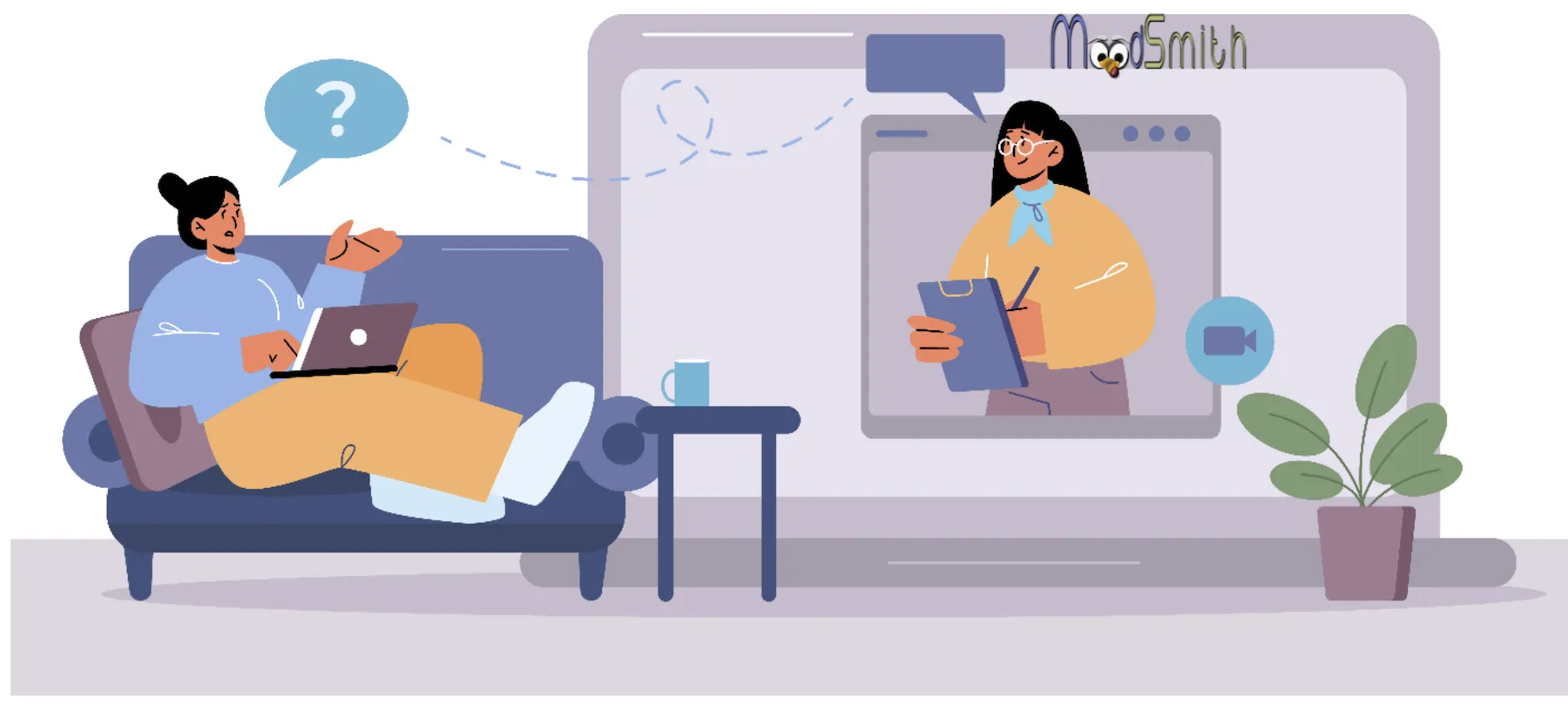Doubt occurs when your mind oscillates between two or more competing positions and can lead to uncertainty and anxiety if no resolution occurs.
This failure to reach a satisfactory answer is paramount to understanding and overcoming OCD and intrusive thoughts.
Resolution is not deciding between two competing things but having the ability to accept and tolerate uncertainty.
This article will explain the role of uncertainty in OCD regarding how it leads to compulsions and outline steps to help you cope with the anxiety that uncertainty creates.
Doubts in OCD
- Did I lock the door?
- Did I do something terrible in the past and forget about it?
- What if I need this in the future?
- How do I know that it is clean?
- What if I hurt someone?
- What if I blaspheme?
The above list of doubts are examples of questions that either;
- cannot be resolved unless you either go back and physically check, or
- you cannot answer them as they are to do with things that may or may not have occurred in the past or may or may not happen in the future.
If many people have questions like those listed above, they can let them go. However, for people with OCD, these questions can become obsessional.
Worked example using thought, ‘did I lock that door?’
This thought can lead to anxiety if you are at work and wonder if you locked your front door. I intentionally did not write that the thought can cause stress, as it cannot. What you’ do’ with the thought leads to the anxiety you may experience.
If you can quickly decide that you automatically lock it every morning without thinking, you will forget about it.
However, suppose you analyse walking out the door, trying to remember to use your keys. In that case, you could experience doubt, and you cannot answer for sure if you lock the door.
Doubt occurs as the tension between wondering if you locked the door and not decisively knowing that you did.
Suppose you are concerned that someone will ransack your house or steal your belongings. Your insurance will not pay out as it was your fault for not securing your property; you will feel anxious and find it difficult to concentrate on your job.
Not being able to tolerate this feeling of uncertainty can lead you to go back and check that you have secured your door. If you could handle the tension, you would not be on the road to the start of compulsive behaviours that maintain OCD.

Structured self-help course for Intrusive Thoughts from the privacy of your home
Dr Ryan: Psychologist and Founder of MoodSmith
Importance of tolerating uncertainty with OCD
If you can tolerate uncertainty, you would not have carried out a compulsion, checking the door.
How to learn to tolerate uncertainty.
There are models of therapy that help with doubt and uncertainty, specifically Acceptance and Commitment Therapy. Still, you can work with doubt and uncertainty using the steps below.
I shall divide this into two sections: questions you can answer any questions relating to the past and future.
Doubt around questions that you can answer.
These include
- Did I lock the door?
- Did I turn something off?
These doubts can reach a resolution by physically checking, but if your goal is to tolerate uncertainty and not carry out a compulsion, try the following.
- Focus on your breathing. The urge to analyse your doubt in your head will be strong. Keep bringing your attention to breathing in and breathing out.
- Label the content of your thoughts differently. Rather than engaging in an analysis of securing your home, tell yourself I have an OCD doubt, or that’s a doubting thought. Bring your complete attention back to whatever you were doing before you had the thought.
- If you cannot resist the urge to check, give yourself a specific number of checks and stick to it.
Remind yourself that you are experiencing anxiety relating to uncertainty and doubt. You can calm the anxiety by focusing on your breathing instead of carrying out a compulsion.
Doubts relating to things that may occur in the past or future.
With these obsessions, you seek a certainty that cannot be resolved, as your thoughts are about the past or the future.
When I work with clients that experience this type of doubt, they seek absolute certainty from me that they either did or did not do something in the past or future.
How to work with this type of uncertainty.
If you were in session with me now and kept asking, for example,
- How do you know I did not do this?
- How do you know for sure?
I would explain that both of us analysing this would make your anxiety worse and feelings of doubt stronger.
In a session, I would tell you that I am directing you away from the thoughts in your head. Together we work to calm the anxiety created by undertaking, for example, relaxation exercises or focusing on your breathing.
You can also try what we call radical acceptance. Please write on the following and remind yourself of it the next time you experience doubt.
I radically accept that I am experiencing doubt related to my OCD, and I am now focusing on my breathing.
Learning to tolerate uncertainty is achievable with practice. The key is to label all doubts as doubts, not engage in the analysis, and bring your attention to something else. I recommend focusing on your breathing as this engages your mind and calms the anxious feelings.
Importance of learning to tolerate uncertainty
Further reading
MadeofMillions
Resolution is not deciding between two competing things but having the ability to accept and tolerate uncertainty.
